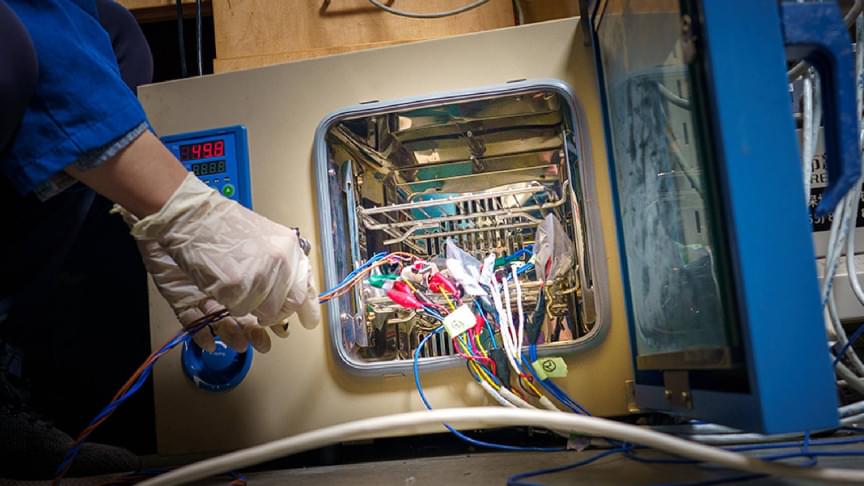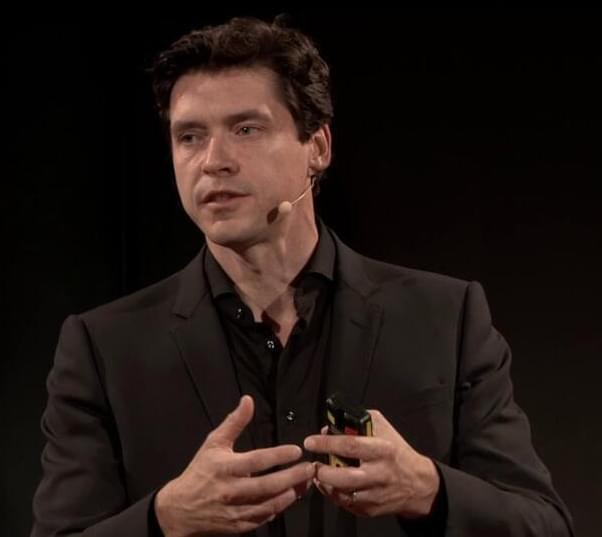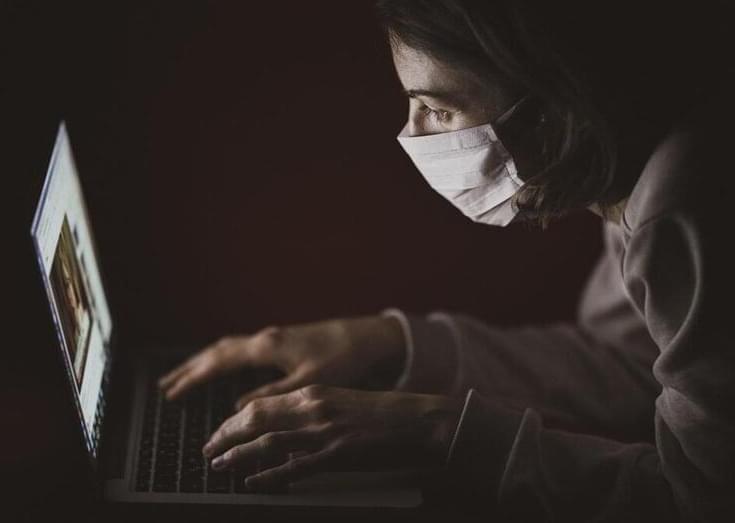What is most interesting about their announcement is that it says that in about 6 months they will be offering service to the entire planet when they will be flying enough laser satellites to pull this off.
Start listening with a 30-day Audible trial and your first audiobook plus two Audible Originals are free. Visit.
http://www.audible.com/isaac or text “ISAAC” to 500–500.
Black Holes are often considered the most dangerous objects in the Universe, especially in science fiction, and today we’ll look at how these may be used as weapons in future warfare.
Visit our Website: http://www.isaacarthur.net.
Support us on Patreon: https://www.patreon.com/IsaacArthur.
SFIA Merchandise available: https://www.signil.com/sfia/
Social Media:
Facebook Group: https://www.facebook.com/groups/1583992725237264/
Reddit: https://www.reddit.com/r/IsaacArthur/
Twitter: https://twitter.com/Isaac_A_Arthur on Twitter and RT our future content.
SFIA Discord Server: https://discord.gg/53GAShE
Listen or Download the audio of this episode from Soundcloud: Episode’s Audio-only version: https://soundcloud.com/isaac-arthur-148927746/weaponizing-black-holes.
In this landmark talk, Peter Diamandis shares how we are rapidly heading towards a human-scale transformation, the next evolutionary step into what he calls a “Meta-Intelligence,” a future in which we are all highly connected — brain to brain via the cloud — sharing thoughts, knowledge and actions.
He highlights the 4 driving forces as well as the 4 steps that is transforming humanity.
In 2014 Fortune Magazine named Peter Diamandis as one of the World’s 50 Greatest Leaders.
Diamandis He is the Founder & Executive Chairman of the XPRIZE Foundation which leads the world in designing and operating large-scale incentive competitions. He is also the Co-Founder & Exec Chairman of Singularity University, a graduate-level Silicon Valley institution that counsels the world’s leaders on exponentially growing technologies.
As an entrepreneur, Diamandis has started 17 companies. He is the Co-Founder and Vice-Chairman of Human Longevity Inc. (HLI), a genomics and cell therapy-based company focused on extending the healthy human lifespan, and Co-Founder and Co-Chairman of Planetary Resources, a company designing spacecraft to enable the detection and prospecting of asteroid for fuels and precious materials.
Evolution has developed very efficient molecular machines, for example for producing energy through rotation. Hendrik Dietz would like to harness these concepts to build his own molecular motors. His group has successfully demonstrated that they can encode and synthesize complex shapes using DNA origami, and have recently discovered how to reduce the cost for mass use and production. With his research, Dietz gets closer to his goal of revolutionizing nanotechnology with the capabilities of molecular motors, just like industry was revolutionized by electric and diesel motors.
. Can you remember playing with legos? Now imagine doing that with molecules. Prof. Hendrik Dietz, professor for experimental biophysics at TUM, runs a lab which does just that. Inspired by the rich functionalities of natural macromolecular assemblies such as enzymes, molecular motors, and viruses, the Dietz lab investigates how to build increasingly complex molecular structures. The goal is to build molecular devices and machines that can execute user-defined tasks. DNA origami in particular enables building nanodevices that can already be employed for making new discoveries in biomolecular physics and protein science. This talk was given at a TEDx event using the TED conference format but independently organized by a local community.
One in five U.S. adults (19 percent) who report having had COVID-19 say they have long COVID symptoms, according to a report from the U.S. Centers for Disease Control and Prevention National Center for Health Statistics.
One in five U.S. adults (19 percent) who report having had COVID-19 say they have long COVID symptoms, according to a report from the U.S. Centers for Disease Control and Prevention National Center for Health Statistics.
Beginning June 1, the Household Pulse Survey, administered in partnership between the U.S. Census Bureau and the National Center for Health Statistics, began asking questions to assess the prevalence of post-COVID-19 conditions. Data were collected from June 1 to June 13, 2022.
The newly collected data show that one in 13 U.S. adults overall (7.5 percent) have long COVID symptoms, defined as symptoms not present prior to COVID-19 infection and lasting three or more months after first contracting the virus. Long COVID is less likely among older adults than younger adults, with nearly three times as many adults ages 50 to 59 years reporting long COVID than those aged 80 years or older. Long COVID is more likely among women than men (9.4 versus 5.5 percent), and it is highest among Hispanic adults (9 percent) versus non-Hispanic White (7.5 percent) or Black (6.8 percent) adults.
Serious psychological distress among U.S. adults remained fairly steady between April and July 2020, according to a research letter published online Nov. 23 in the Journal of the American Medical Association.
Emma E. McGinty, Ph.D., from the Johns Hopkins Bloomberg School of Public Health in Baltimore, and colleagues conducted two waves of the Johns Hopkins COVID-19 Civic Life and Public Health Survey (April 7 to April 13, 2020, and July 7 to July 22, 2020). Changes in psychological distress during the COVID-19 pandemic was evaluated among 1,337 U.S. adults.
The researchers found that 13 percent of respondents reported serious distress in July 2020 versus 14.2 percent in April 2020, with 72 percent of adults reporting serious distress in both waves. The prevalence of serious distress was highest among adults aged 18 to 29 years (25.4 percent in April versus 26.5 percent in July), those with income less than $35,000 (20.2 percent in April versus 21.2 percent in July), and Hispanic individuals (17.9 percent in April versus 19.2 percent in July) at both time points. Among those with serious distress, the most common stressors were concerns about contracting COVID-19 (65.9 percent) and pandemic effects on employment (65.1 percent) and finances (60.6 percent). Educational interruptions were a stressor among adults with serious distress attending college and/or with school-aged children (69 percent).
There has been a spike in severe psychological distress in young Australian adults under 35, according to new analysis from The Australian National University (ANU).
The study—which tracked 3,155 Australians—is the first-of-its-kind to compare mental health data before and during the COVID-19 pandemic.
“Young Australians aged 18 to 24 and those aged 25 to 34 are significantly worse off in terms of mental health than those who are older,” Associate Professor Ben Edwards, from the ANU Centre for Social Research and Methods, said.









